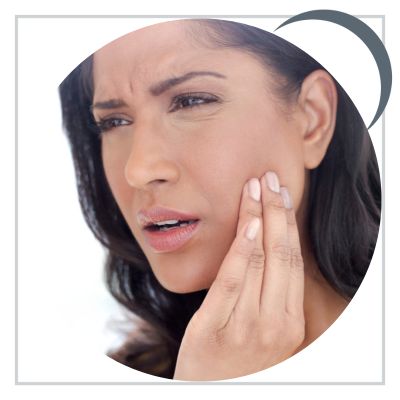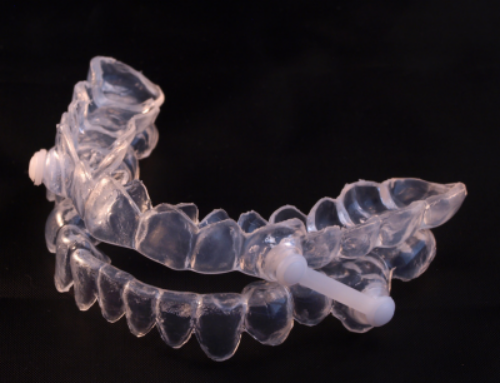Temporomandibular Joint Disorder (TMD) is a condition that affects the temporomandibular joint (TMJ), causing pain and discomfort in the jaw and surrounding areas. It can be caused by various factors such as teeth grinding, jaw clenching, misalignment of the jaw or trauma. While it’s essential to consult a specialist for a proper diagnosis and treatment, there are several measures you can take at home to alleviate TMJ discomfort. Let’s explore some self-care strategies and how to know when it’s time to seek professional help.
Alleviating TMJ Discomfort at Home
1. Applying Heat or Cold Packs
Applying a warm compress or cold pack to the affected area can help reduce pain and inflammation associated with TMD. Use a warm compress for muscle relaxation or a cold pack to numb the area and reduce swelling. Ask your healthcare provider which method is best for you.
2. Practicing Jaw Exercises and Stretches
Gentle jaw exercises and stretches can help improve jaw mobility and alleviate TMD symptoms. Some common exercises include opening and closing the mouth slowly, moving the jaw from side to side and gently massaging the jaw muscles. Consult with a healthcare professional or physical therapist to learn specific exercises suitable for your condition.
3. Eating Soft Foods and Avoiding Chewing Gum
Chewing hard or tough foods can exacerbate TMD symptoms. Opt for softer foods that require less chewing, such as mashed potatoes, yogurt, soups, or smoothies. Additionally, avoid chewing gum, as it can strain the jaw joint and worsen discomfort.
4. Maintaining Good Posture
Poor posture can contribute to TMD symptoms. Practice good posture by keeping your back straight, shoulders relaxed and head in a neutral position. Avoid resting your chin on your hand or cradling the phone between your ear and shoulder, as these positions can strain the jaw joint.
5. Managing Stress
Stress and anxiety can lead to increased jaw clenching and teeth grinding, aggravating TMD symptoms. Explore stress management techniques such as deep breathing exercises, meditation, yoga or engaging in activities that promote relaxation and reduce tension.
6. Using Over-the-Counter Pain Relievers
Over-the-counter pain relievers, such as nonsteroidal anti-inflammatory drugs (NSAIDs), can help alleviate TMD-related pain and inflammation. However, it’s important to follow the recommended dosage and consult with a healthcare professional if you have any underlying medical conditions or are taking other medications.
Knowing When to See a Specialist
While self-care measures can provide temporary relief, it’s crucial to seek professional help if TMD symptoms persist or worsen. Here are some signs indicating it’s time to see a specialist:
- Severe or chronic pain that affects your daily activities and quality of life.
- Difficulty opening or closing your mouth, or a locked jaw.
- Frequent headaches or migraines associated with jaw pain.
- Clicking, popping or grating sounds when moving your jaw.
- Changes in your bite or difficulty in chewing.
- Symptoms that do not improve or worsen despite home remedies and self-care measures.
At Virginia Sleep & TMJ Therapy in Richmond, VA, we understand that jaw pain can be debilitating. Our team is here to help diagnose your condition and develop a personalized treatment plan so you can live pain-free. To request an appointment, please call us at 804-729-3474 or fill out our online appointment request form. Our team will connect you with our partner, Angus Dentistry, for efficient and comfortable treatment.





